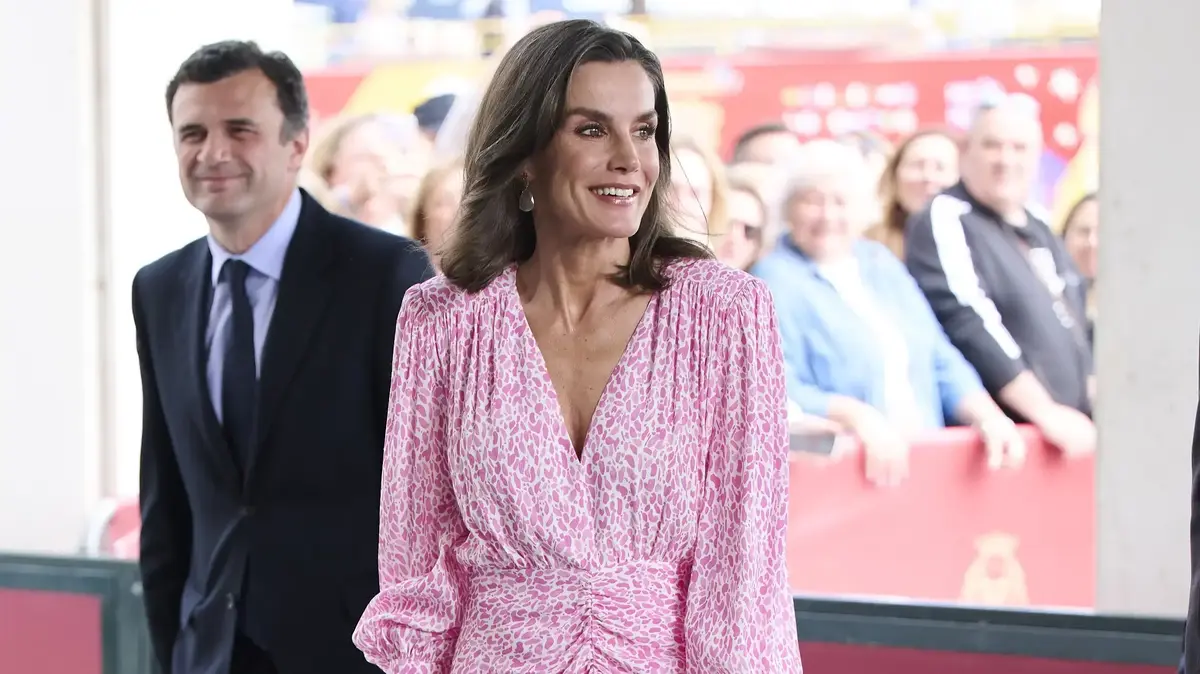Carlos III of the United Kingdom (yes, you have to name him with the corresponding ordinal) is preparing his coronation, which will take place at the beginning of May at Westminster Abbey.
And right now there are several musicians working to fulfill the special order that the monarch has given: the composition of the 12 new musical pieces that will sound during his coronation.
It is not very risky to say that, when the time comes, the informative specials will scrutinize and comment on the clothing of the king, the queen consort and other prominent members of royalty, the planned gala menu, the ornamentation of the previous tour and others protocol details.
I hope that the musical commissions sponsored by the new monarch are not included among the objects that can be criticized as excessive or superfluous.
We know that Queen Elizabeth's musical tastes were in the vein of ABBA and George Formby, the banjo ukulele champion.
Her son, on the other hand, has other preferences: may God save the king.
Among the commissions he sponsors for his coronation are a solo organ piece, a march, and a hymn
(Coronation anthem).
in emulation of the commission required almost 300 years ago to Georg Friedrich Händel on the occasion of the coronation of George II.
I salute and celebrate the musical whims of this new British monarch, who with this gesture places himself in a continuous and fruitful line with respect to many of his British and non-British predecessors: that of the Monarchy as a musical patron.
Court funding for music has been an important form of foundation and humanistic creation in the West.
Culture is the daughter of its time: the kings of yesteryear favored artists recognized at the time and immortal in the history of their art, making them visible figures and helping them to prevail in later culture.
Royal patronage has left us a part of our sound heritage.
The same gesture of musical patronage was carried out centuries ago by the court of King Felipe V. On the occasion of the wedding of the Infanta María Teresa, an opera was commissioned at the Court.
Everything fell into the right hands, probably because the
castrato
Farinelli, who then resided in the Spanish Court in the service of the monarch, advised the infanta: they chose to perform a play with music by the Italian Francesco Corselli and the libretto by Pietro Metastasio.
With the cold of the winter of 1744 in the Royal Coliseum of the Buen Retiro in Madrid, the work Achiles en Esciros
(
Achille in Sciro
) was premiered
) that was performed only once and that these days can be enjoyed at the Teatro Real in Madrid.
This epithalamic representation was a demonstration of monarchical power and was adorned with imposing splendor: nothing has remained of the fireworks or the banquets, of the commissioned music we have retained our patrimony.
When the curtain rose last week at the Teatro Real we were finally rescuing from oblivion the opera commissioned by the Court of an 18th century king.
And part of the fact that we can enjoy this heritage has to do with the management of culture today: the companies that sponsor it, the Fundación Amigos del Teatro Real and the scientific projects that have recovered and digitally published the score of this opera.
In its plot, the opera recreates Achilles' youth, when his mother, to keep him away from the Trojan War, sends him to the island of Sciros disguised as a woman.
Achilles shows an irrepressible drive towards love passion and war, so it was foreseeable that everything would go wrong: he falls in love with the daughter of the king of Scyros and one day when he hears a war fanfare he throws himself to take up arms and the shield as attracted by a magnetic field.
No matter how many tricks were woven by others, Achilles ends up revealing his nature and fulfills his destiny.
The brand new King Charles III of the United Kingdom was not sitting in the seats of the Teatro Real on February 17.
But it was tempting to imagine how his head would have dialogued with what the countertenor Gabriel Díaz sang, powerfully playing the leading role of Achilles.
If the monarch had attended this opera in the brilliant production of the Teatro Real, he would feel identified with the very genesis of the show: music born by the mandate of a monarch.
But perhaps it would also be reflected in that impatient Achilles that resonates with his own story: the confusion of identities, love as an ungovernable element, the feeling of not fully taking control of his life.
Will the compositions commissioned today for the coronation of Charles III of the United Kingdom be performed in a Spanish theater in a few centuries?
Subscribe to continue reading
Read without limits
Keep reading
I'm already a subscriber

/cloudfront-eu-central-1.images.arcpublishing.com/prisa/H4G4ABMN35MIHDNBHWCTRKTIBM.jpg)



